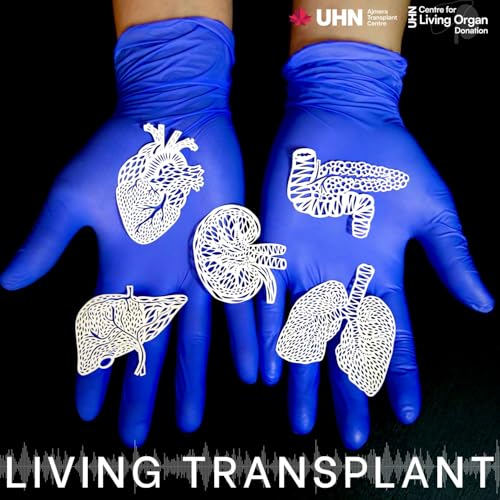In this powerful episode of The Living Transplant Podcast, host Candice Coghlan is joined by Kamika Sylvester, RN — nurse, patient advocate, nonprofit founder, and tech entrepreneur — for a deeply honest conversation about racism in healthcare, patient advocacy, and reimagining what truly equitable care can look like. Kamika shares her journey as a patient first, navigating a life-altering diagnosis at just 18 years old, and how that experience shaped her path into nursing, advocacy, and systems change. Together, Candice and Kamika unpack why mistrust exists in healthcare for many racialized communities, how bias and burnout impact both patients and providers, and why dignity and listening must be at the centre of care.
Listeners will also learn Kamika’s practical ABCDs of Advocacy, a simple but powerful framework to help patients and families navigate complex healthcare systems with confidence:
A – Adjust your attitude
B – Bring backup
C – Have concise conversations
D – Keep detailed documentation
The conversation also explores:
- Why representation in healthcare teams matters for patient outcomes
- How burnout affects healthcare providers — especially those from racialized communities
- What real cultural safety looks like beyond “checkbox” training
- How healthcare leaders, providers, and allies can use their privilege to create meaningful change
- What a truly inclusive, reimagined healthcare system could look like
- This episode is essential listening for patients, caregivers, healthcare professionals, and anyone committed to building a more just, compassionate, and equitable healthcare system.
Links
Centre for Living Organ Donation
Ajmera Transplant Centre
Code Melanin – Supporting Black, Indigenous, and racialized healthcare professionals and addressing burnout
The Black Birth Project – Advancing equity in maternal and birth outcomes
Green Table Talk (ACB Organ Health Committee) – Community conversations on organ health and equity
Each episode, we share patient stories about organ donation from transplant recipients and living donors, along with insights and education from leading medical experts. Whether you’re a patient, a caregiver, a donor, or simply curious about the world of organ transplantation, you’ll hear expert advice and inspiring journeys of hope, resilience, and second chances.
About our Host
Candice Coghlan is the Education & Outreach Coordinator at the Centre for Living Organ Donation at the UHN Ajmera Transplant Centre. She is also a board member for the National Kidney Foundation and a kidney transplant recipient. After she was diagnosed with kidney failure in her early 20s, she was on dialysis until receiving a transplant from her mother.
Have questions? Comments? Ideas for an episode? Please reach out to the Centre for Living Organ Donation at livingorgandonation@uhn.ca. Thanks for spending your time with us.
The views and opinions expressed in this episode do not necessarily reflect the official policy or position of Toronto General or University Health Network.
 54 mins
54 mins 53 mins
53 mins 44 mins
44 mins 40 mins
40 mins 36 mins
36 mins 40 mins
40 mins 38 mins
38 mins 31 mins
31 mins
